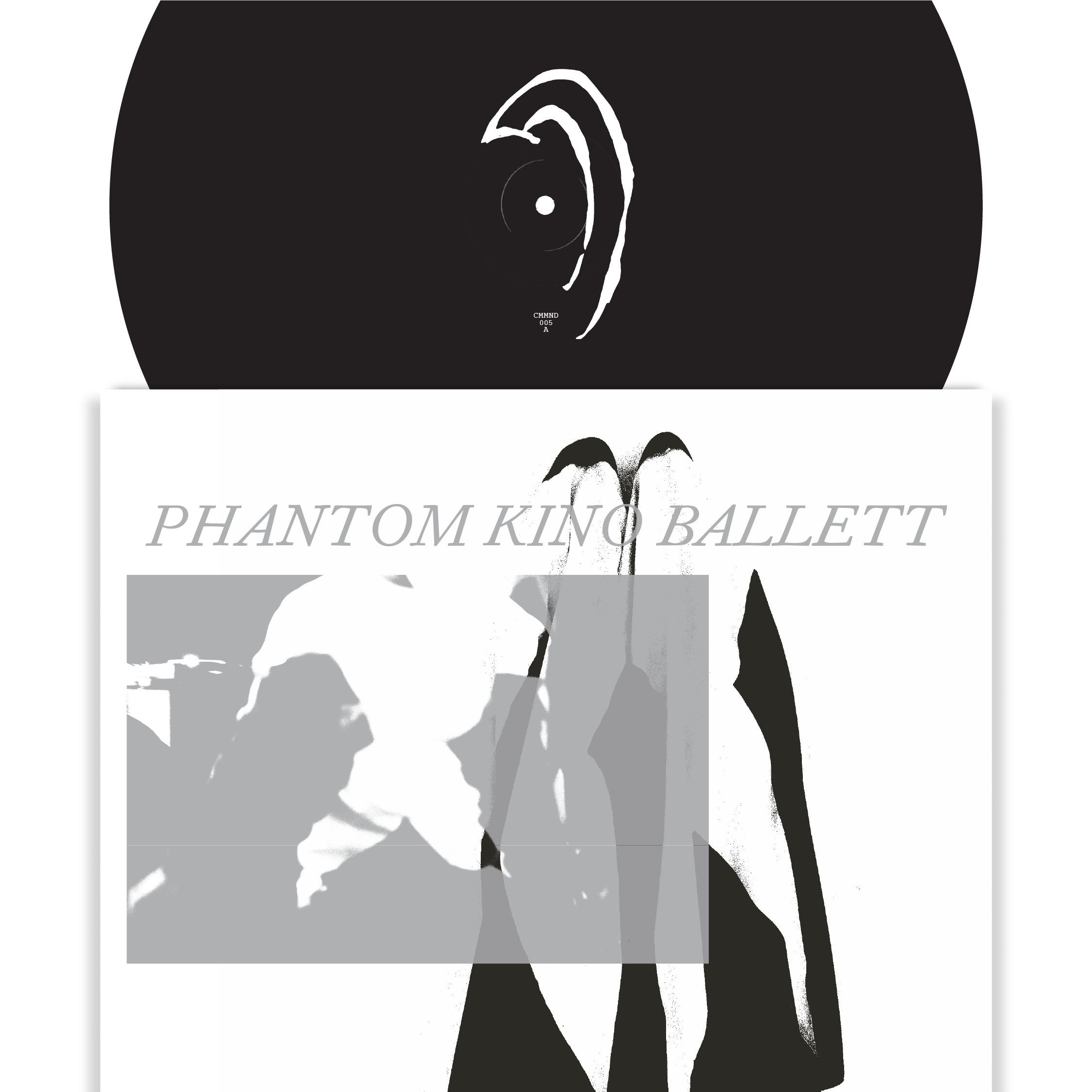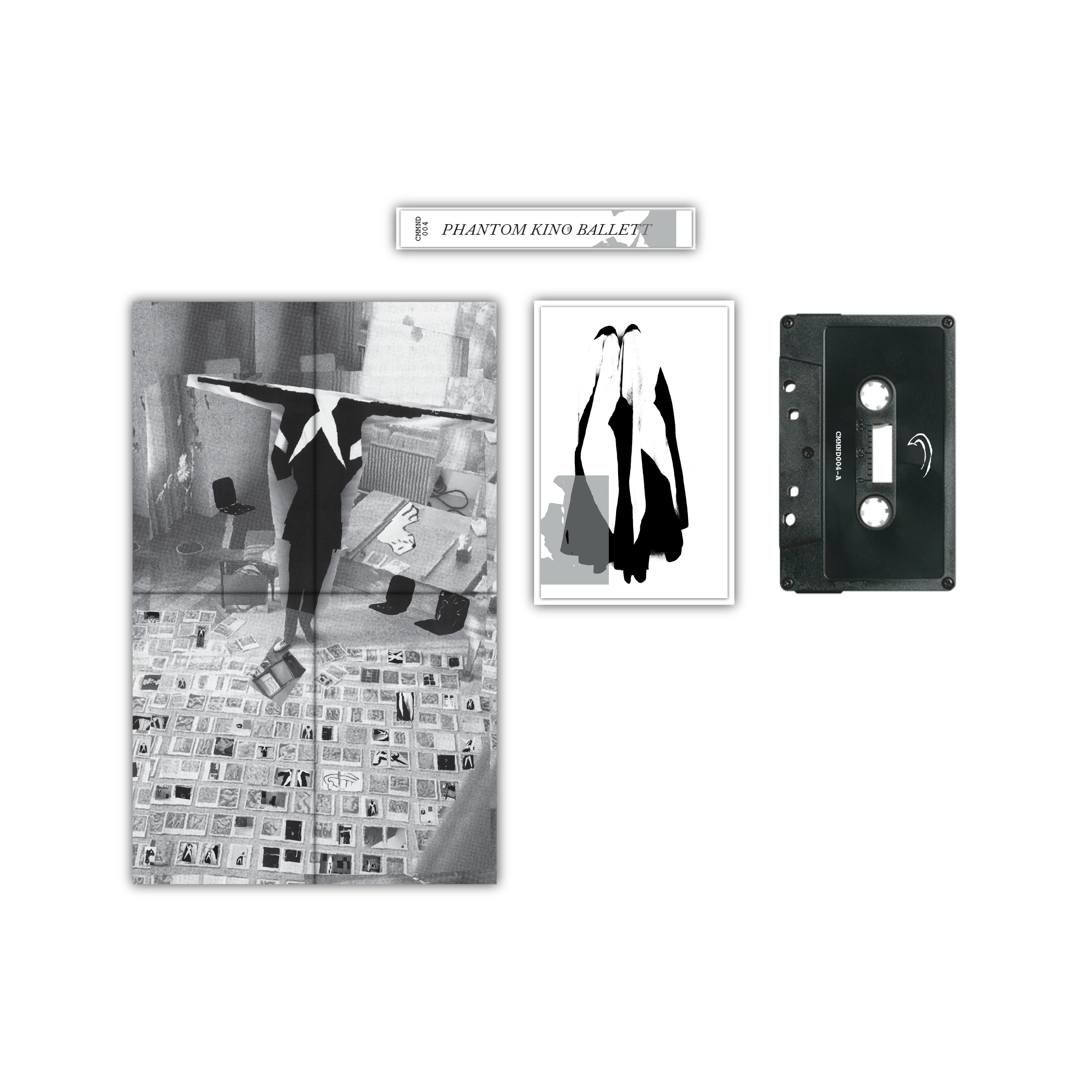
Commend See 004
Lena Willikens (sound)
Sarah Szczesny (object)
“I can’t explain myself, I’m afraid, because I am not myself, you see. Anyway, explanations take such a dreadful time…”
Phantom Kino Ballett evades explanation, its stage in perpetual set change and motion. Our guides, the Phantoms, lead us through a well-worn labyrinth of Warhol glamor avatars, bel canto icons, and sensory fragments that converge within black boxes or simulated enclosed environs.
Pirouetting between theatre and club, while conjuring ghosts of Sylvia Plath’s The Applicant, Holly Woodlawn’s nervous breakdowns, Mario Montez’ mobilee, Maria Callas’ chiffre and Anna Oppermanns’ eyelashes, the Phantom effect feels dreamlike.
To characterize this experience as such falls short of the carefully collaged concert and immersion the Phantom Kino Ballett becomes. So, let’s call it a hallucination: a socially-conducted, aesthetically-charged experience that whirrs, reels, and metamorphoses as a film playing in the deepest crevice of one’s mind.
Phantom Kino Ballett is an audiovisual drama created by Amsterdam-Cologne-based collaborators Lena Willikens and Sarah Szczesny. An assemblage of performance, installation, soundtrack and video, the work gathers and distributes sonic, optical, and experiential references widely and to delirious effect.
When the Phantom physically manifests, collaged film scenes and interview excerpts dance with kinetically captured, painted, woven, and other manipulated surfaces. Our guides don costumes like puppets, with white phantoms on black shirts (or black phantoms on white shirts) appearing to move unaccompanied through space.
Strobes and smoke machines make sculptural use of club mainstays, while fourth-world murmurings and techno catharsis give legibility to a fragmentary experience where spoken excerpts are cut and placed roughly into non-sequiturs of intentional misunderstanding, and jagged panning reveals only the surface of areas of static visual works and readymades.
Willikens’ transportive DJ sets and music productions have instituted her as an in demand and in command dance music presence the world over. For her acclaimed Phantom Delia release on Cómeme, minimal-wave tinged techno chug was paired with five video chapters created by Szczesny together with Willikens, a precursory tale to the Phantom Kino Ballett chronicle.
Szczesny studied at the Academy of Fine Arts in Dusseldorf under Rosmarie Trockel. Between 2011 and 2014 she has designed all the artwork for the Cómeme label. Her work investigates the materiality of media and the history and production of commercial visual culture. Appropriating and reassembling figments of popular, mechanically produced art and culture (both imagistic and textual) inform Szczesny’s contribution to the visual content of Phantom Kino Ballett as well as her musical contributions.
Varied, site specific iterations of Phantom Kino Ballett have occurred in Tokyo and Osaka; at Meakusma Festival in Eupen, Belgium: at Commend in New York, at PCP Gallery in Paris and most recently, at Dekmantel Festival in Amsterdam. In each, a contemporary, Carollesque story of domestic dissociation, public scrutiny and suffering explanation is told.
For Commend See, the Ballett’s tactility and collectability are expanded. An artist edition of 15 vinyl pieces and 300 cassettes capture two alternate takes of its soundtrack, with paper materials commemorating its character. The cassette edition includes a 40-minute addendum called “Passage Transkript,” a soundscape created by Willikens & Szczesny inspired by their time in Kyoto, Japan in the fall of 2017. Will Work For Good’s responsive design includes Thomas Venker’s photos from the various happenings past.
All proceeds from this release will be donated to agisra e.V., a non-profit organization advocating on behalf of migrant women and against sexual and racist violence. agisra is based in Cologne, Germany, and was chosen by Lena and Sarah. — agisra.org
Images


